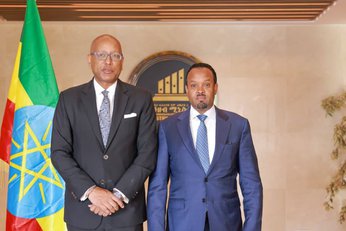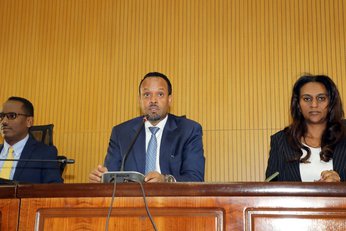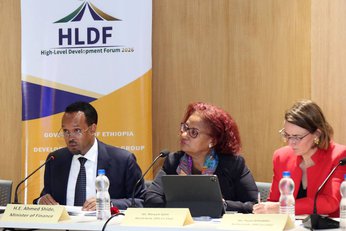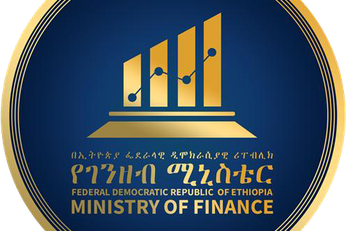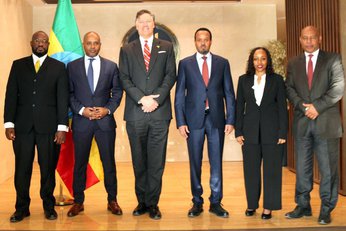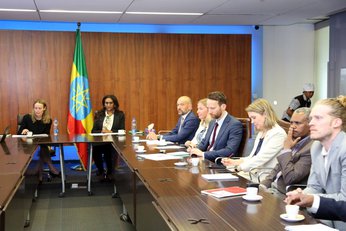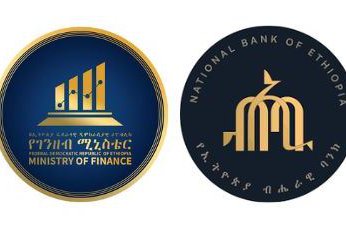Hope Rises from the Ashes: How a Health Center Project United Two Warring Communities
Published: June 11, 2025
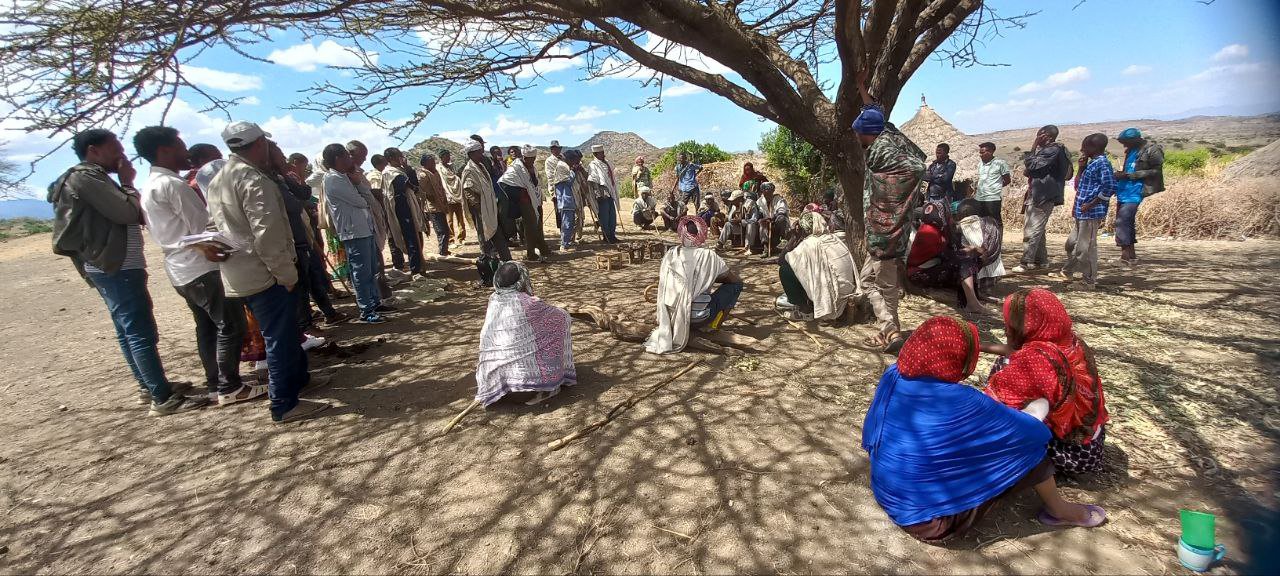
Meket is one of the woredas located on the western side of the Semien Wollo Zone in the Amhara Region of Ethiopia. In the heart of Meket’s district, two communities, 07 Defergie and 08 Arebal, were locked in a bitter rivalry. Years of raids, blood feuds, and deep social divisions had driven a wedge between them, making even basic interactions dangerous. This animosity reached a boiling point during the recent conflict in northern Ethiopia, which left both communities devastated and struggling to rebuild. Both communities lost basic water, educational and health facilities due to the conflict. Amidst the ruins, a glimmer of hope emerged through the Response-Recovery-Resilience for Conflict-Affected Communities in Ethiopia Project (3R4CACE), which is a multifaceted initiative aimed at supporting communities impacted by conflict in Ethiopia. The 3R4CACE project targets five regions and close to 50 woredas in Afar, Amhara, Benishangul-Gumuz, Oromia and Tigray that were most affected by conflict, including the two communities, 07 Defergie and 08 Arebal in Amhara region. The selection process aims to ensure the project effectively addresses the needs of conflict-affected communities while promoting sustainability and resilience.
However, this project, designed to bring much-needed healthcare to the two communities, among others, faced a monumental challenge: the deeply ingrained distrust between the two communities. Initially, in consultation with community members the 3R4CACE project at the local level proposed building a shared facility in a central location based on the available budget. This seemingly practical solution was immediately rejected by both groups. They didn’t want to share common facility whether health or educational. The project coordinator, Mesay Belay noted that “Fear and resentment ran so deep that they preferred smaller, less-equipped health centers, even if it meant fewer resources, rather than sharing a space”.
The project team recognized the necessity of bridging the chasm of distrust in order to deliver healthcare to these vulnerable communities. It was a formidable challenge that demanded months of painstaking effort. They went door-to-door, engaging in numerous discussions and consultations with community members. Throughout these interactions, they listened to harrowing stories of theft, violence, and the pervasive daily fear. The project team understood that the health center was not merely about bricks and mortar; it was about healing deep-seated wounds within the community.
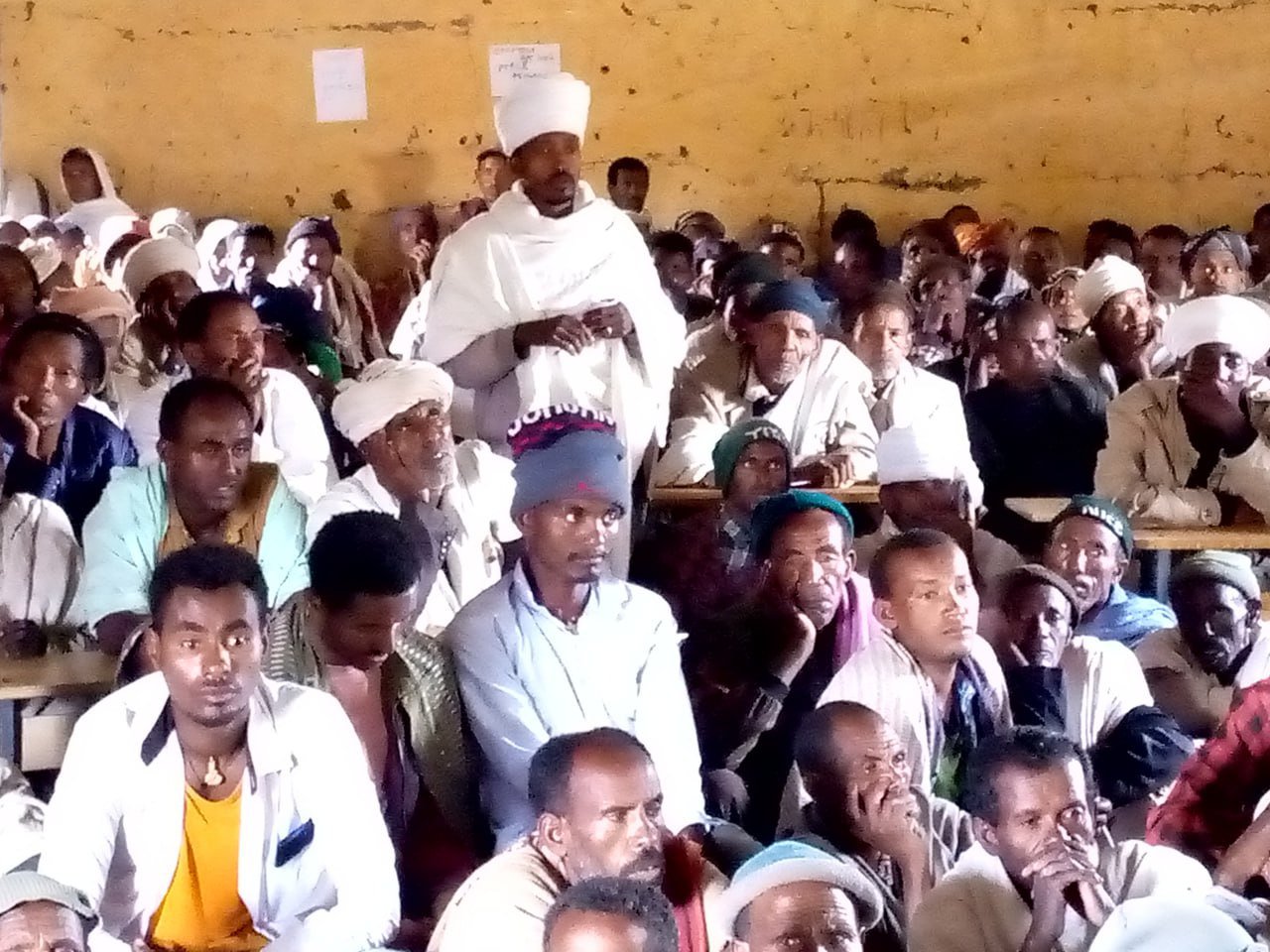
Recognizing the need for a broader approach, they enlisted the help of respected figures within the communities, particularly religious leaders. These individuals, wielding the power of faith and tradition, helped facilitate dialogues that emphasized shared values and a common identity as Ethiopians. The message of forgiveness and unity gradually began to resonate. Community members, weary from years of conflict, started to see the project as an opportunity to break free from the cycle of pain and division.
The turning point came when the communities, through their own initiative, held a series of community meetings. They bravely confronted their shared history, acknowledging the pain and suffering they had inflicted upon each other. In these gatherings, a remarkable transformation occurred. Former adversaries started sharing meals, engaging in traditional customs, and rediscovering the bonds that had been severed. The health center project, once a source of contention, evolved into a symbol of reconciliation.
The communities, in a powerful display of unity, drafted a letter addressed to the district council, expressing their newfound commitment to the shared health center. This document, signed by numerous community members, served as a testament to their collective will to heal and move forward.
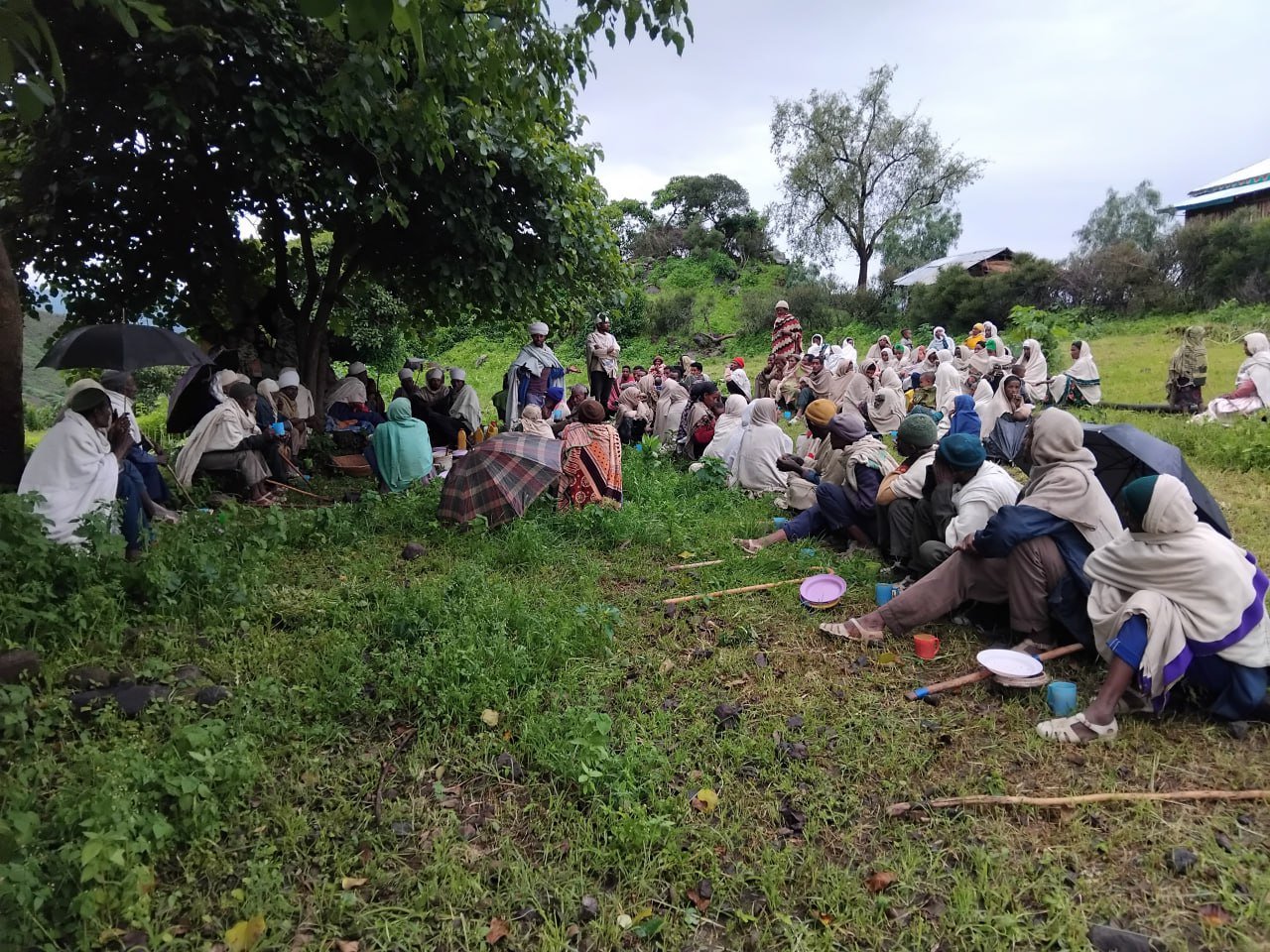
Today, through the 3R4CACE Project, the construction of the shared health center is underway, a testament to the transformative power of dialogue and the resilience of the human spirit. The communities, once divided by fear and resentment, are now united by a shared vision for a healthier and more peaceful future. What started as a health infrastructure project has become a beacon of hope, demonstrating that even the deepest wounds can be healed when communities choose compassion and collaboration over conflict.
------
About the Project:
The Response-Recovery-Resilience for Conflict-Affected Communities in Ethiopia Project (3R4CACE) is a multifaceted initiative aimed at supporting communities impacted by conflict in Ethiopia. The project, supported by the World Bank, is implemented by the Ministry of Finance (MoF) and the Ministry of Women, Children and Social Affairs (MoWSA), and targets five regions in Ethiopia: Afar, Amhara, Benishangul-Gumuz, Oromia, and Tigray. This selection was based on conflict damage and needs estimates at appraisal and the project’s financial envelope. Overall, the 3R4CACE project targets regions and woredas most affected by conflict in Ethiopia. The selection process aims to ensure the project effectively addresses the needs of conflict-affected communities while promoting sustainability and resilience.

